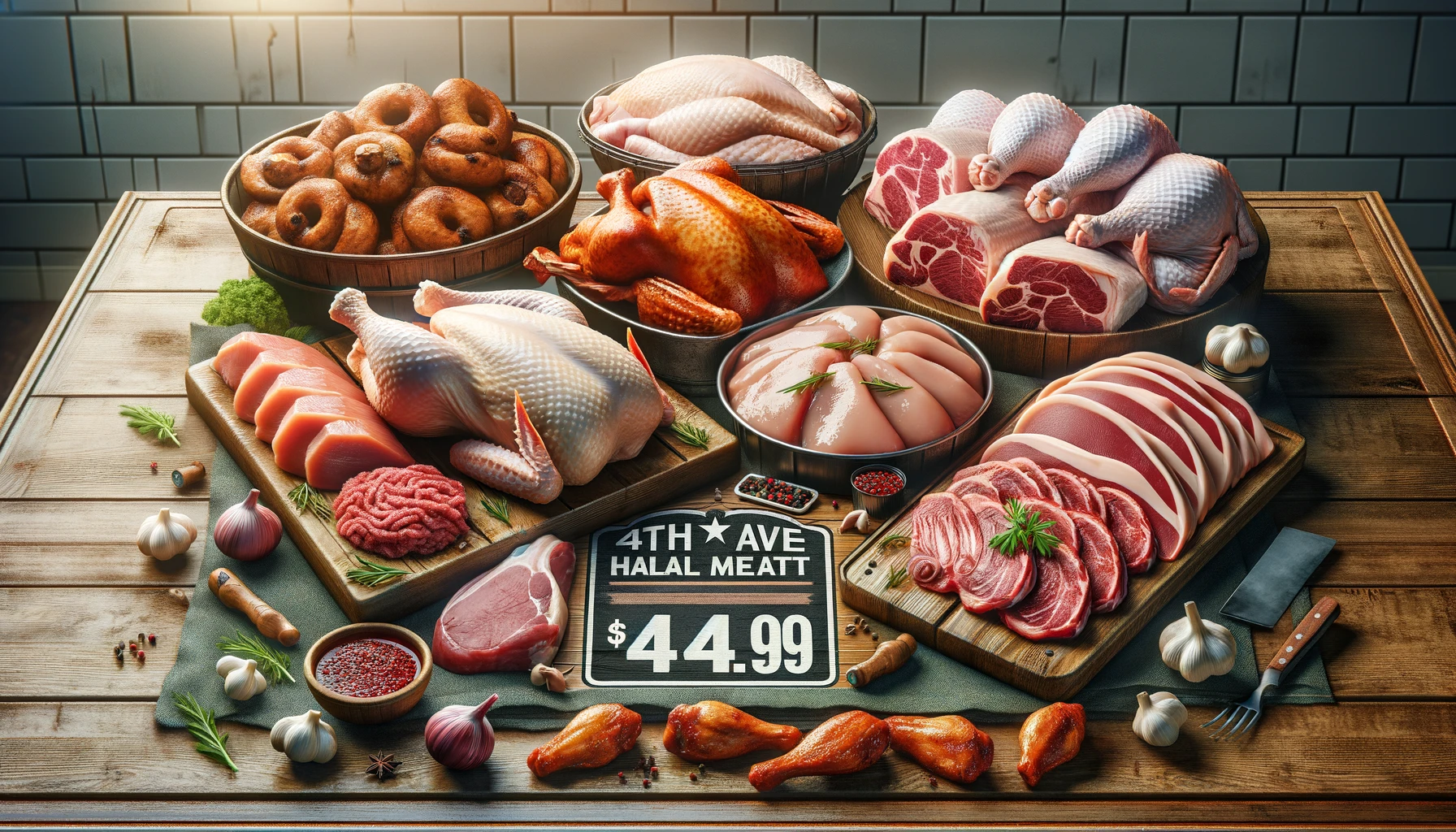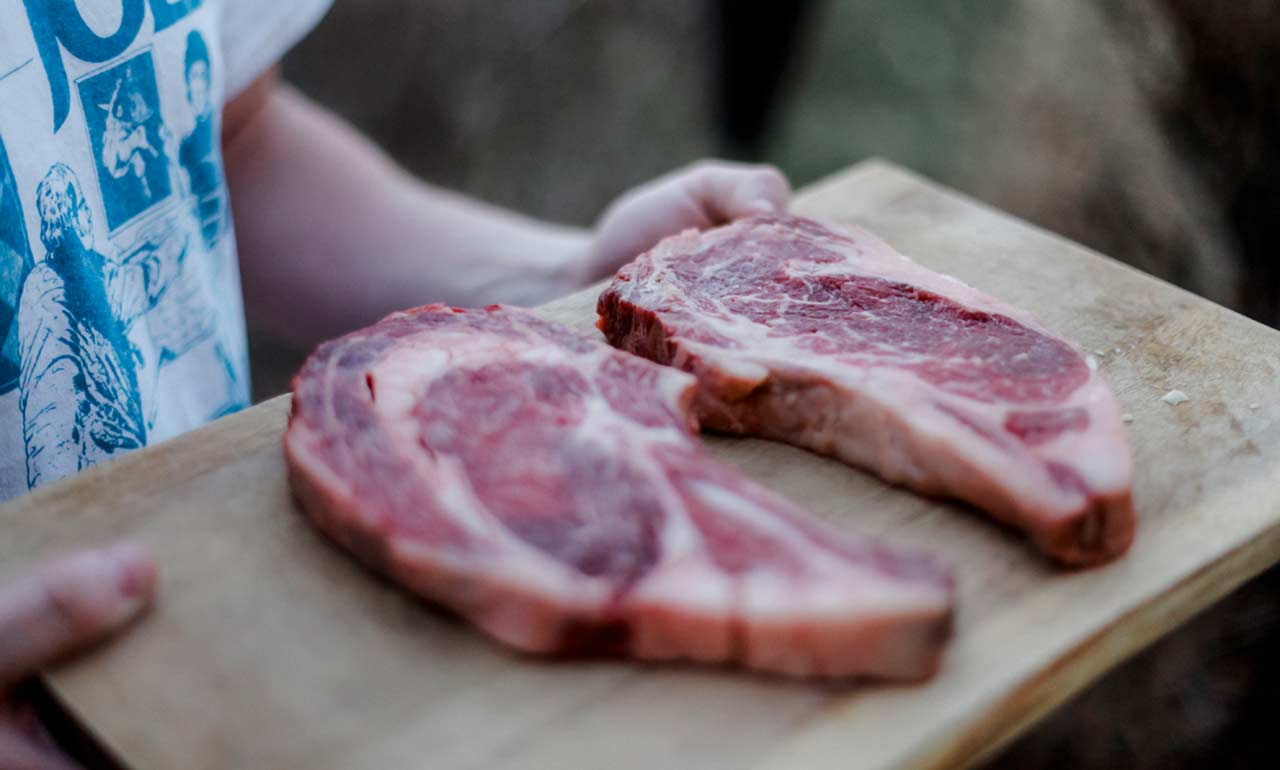Why Buying at a Neighborhood Meat Market Guarantees Fresh, High-Quality Cuts
Purchasing at a neighborhood meat market supplies distinctive advantages that frequently go undetected by consumers accustomed to larger retail chains. The effects of choosing local expand past prompt advantages, triggering a better exam of what this selection genuinely means for both customers and the neighborhood economic situation.
Benefits of Regional Sourcing
In the realm of food purchase, the benefits of neighborhood sourcing stick out plainly. By purchasing meat from local markets, customers gain straight accessibility to items that are usually fresher and much more flavorful than those discovered in bigger, business grocery stores. Local sourcing lowers the moment and distance food travels from ranch to table, which not just improves taste but additionally preserves nutritional value.

Furthermore, regional sourcing often gives transparency concerning the beginnings of the meat. Customers can ask about the farming techniques used, animal well-being requirements, and whether the meat is natural or grass-fed. This details encourages shoppers to make educated choices straightened with their worths.
Quality Assurance Standards
Regional meat markets commonly abide by strenuous quality assurance criteria that ensure the products provided meet high security and quality criteria. These standards usually encompass different phases of the meat production procedure, from sourcing to handling and storage.
First, local markets frequently develop rigid supplier requirements, making sure that just trustworthy ranches and manufacturers are made use of - bagley meat market edwardsville il. This decreases the chance of contamination and advertises higher animal well-being standards. Additionally, numerous neighborhood meat markets apply routine examinations to validate that the meat is refined under sanitary problems, additionally reducing health and wellness risks
Temperature control is another crucial element of top quality assurance. Neighborhood meat markets regularly keep track of refrigeration systems to maintain optimum storage space temperature levels, making certain that meat continues to be secure and fresh for usage. The implementation of traceability systems enables markets to track the beginning of their items, supplying openness and accountability.
Last but not least, staff at regional meat markets are commonly trained to recognize indicators of putridity and comprehend correct handling strategies. This commitment to high quality control not only boosts the total standard of the meat yet additionally fosters consumer depend on, making regional meat markets a reputable source for top notch cuts.
Supporting Neighborhood Farmers
Sustaining regional farmers is important for cultivating a lasting food system and enhancing community durability. They straight contribute to the livelihoods of farmers in their region when consumers pick to go shopping at neighborhood meat markets. This not only supports the local economic climate yet additionally reinforces the agricultural industry, guaranteeing that it stays viable and lively.

Additionally, sustaining local farmers promotes a sense of neighborhood and link between customers and manufacturers. It motivates transparency in food sourcing and imparts trust, as clients can create relationships with the individuals who raise their food. This straight link eventually brings about an extra engaged and educated public, which is crucial for supporting for lasting agricultural practices in the future.
Sustainable Practices
Sustainable practices in meat markets play a critical duty in advertising ecological stewardship and guaranteeing animal well-being. Regional meat markets typically focus on sourcing their products from ranches that carry out lasting and moral farming techniques. These methods include rotational grazing, which assists maintain soil health and decreases carbon emissions, together with minimizing the usage of prescription antibiotics and hormones in livestock.
In addition, regional meat markets normally emphasize openness in their supply chains. Consumers are offered with details pertaining to the origin of their meat, enabling them to make enlightened choices that line up with their worths. By sustaining regional farmers who practice lasting approaches, customers add to the preservation of biodiversity and the decrease of transport discharges related to long-distance meat distribution.
In addition, lots of neighborhood meat markets participate in waste decrease approaches, such as making use of every part of the animal and advertising off-cuts that could or else go unsold. By cultivating an extra sustainable strategy to meat usage, these markets this website not just provide top notch items yet additionally add positively to the setting and pet well-being. In significance, purchasing at a regional meat market lines up consumers with click a broader movement towards liable and honest food sourcing.
Individualized Customer Care
Buying at a meat market frequently incorporates greater than simply the items provided; it is also regarding the experience and the partnerships developed in between customers and team. Individualized client service is a hallmark of regional meat markets, setting them apart from larger grocery chains. Knowledgeable team take the time to comprehend individual consumer choices, guaranteeing that each check out is customized to particular needs.
Consumers profit from skilled suggestions on cuts, cooking techniques, and prep work suggestions, fostering a feeling of trust fund and commitment. This individualized communication allows clients to ask inquiries and look for suggestions, causing informed investing in choices. Employee typically remember routine clients and their preferences, developing an inviting environment that cultivates community ties.
In addition, individualized service prolongs to unique requests, such as custom-made cuts or details preparation techniques, which larger merchants may not fit. This degree of focus reinforces the commitment of local meat markets to top quality and client satisfaction.
Essentially, individualized consumer solution not just improves the purchasing experience but likewise makes certain that clients entrust to the ideal items suited to their culinary demands, making every browse through a satisfying one.
Conclusion
Finally, shopping at a neighborhood meat market supplies countless advantages, consisting of premium freshness and top quality as a result of decreased traveling times. Rigorous quality assurance measures boost openness and guarantee high requirements for products. Sustaining regional farmers cultivates area relationships and reinforces the neighborhood economy, while sustainable practices add to ecological stewardship. Additionally, personalized customer solution boosts the shopping experience, making regional my response meat markets a recommended choice for consumers looking for both quality and honest factors to consider in their food sourcing.
The ramifications of choosing regional expand beyond prompt advantages, motivating a closer assessment of what this selection truly implies for both customers and the neighborhood economic situation.
Supporting regional meat markets also contributes to the local economic climate. Neighborhood meat markets often keep an eye on refrigeration systems to maintain optimal storage space temperature levels, guaranteeing that meat remains risk-free and fresh for intake.Local farmers are often more attuned to the details demands of their areas, expanding plants and raising animals that line up with regional preferences and preferences. Supporting local farmers promotes community connections and reinforces the neighborhood economy, while lasting techniques contribute to environmental stewardship.